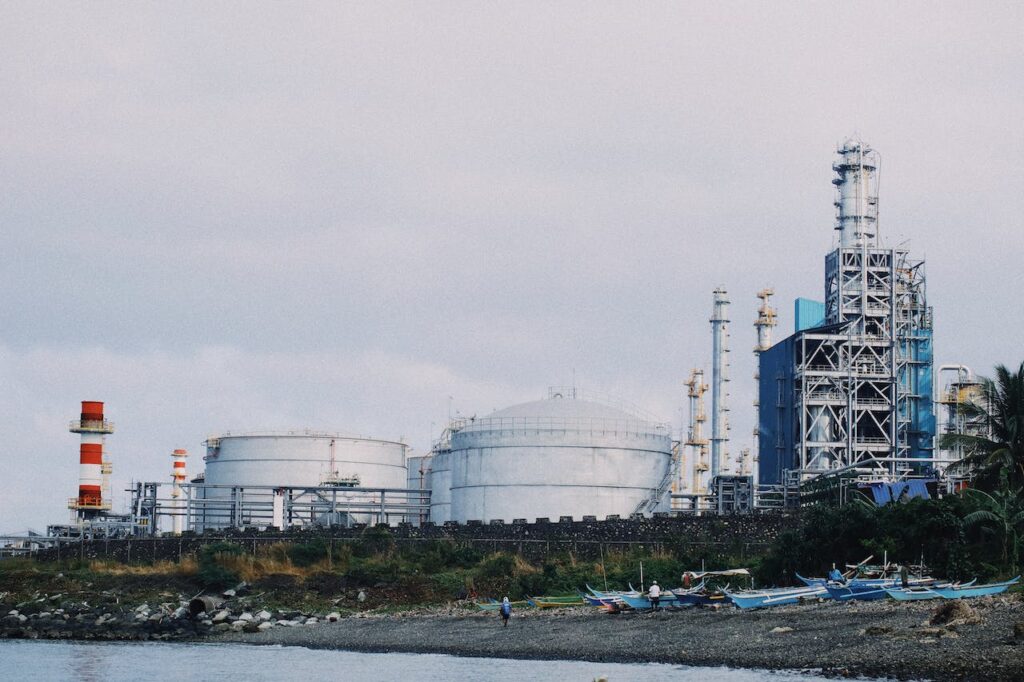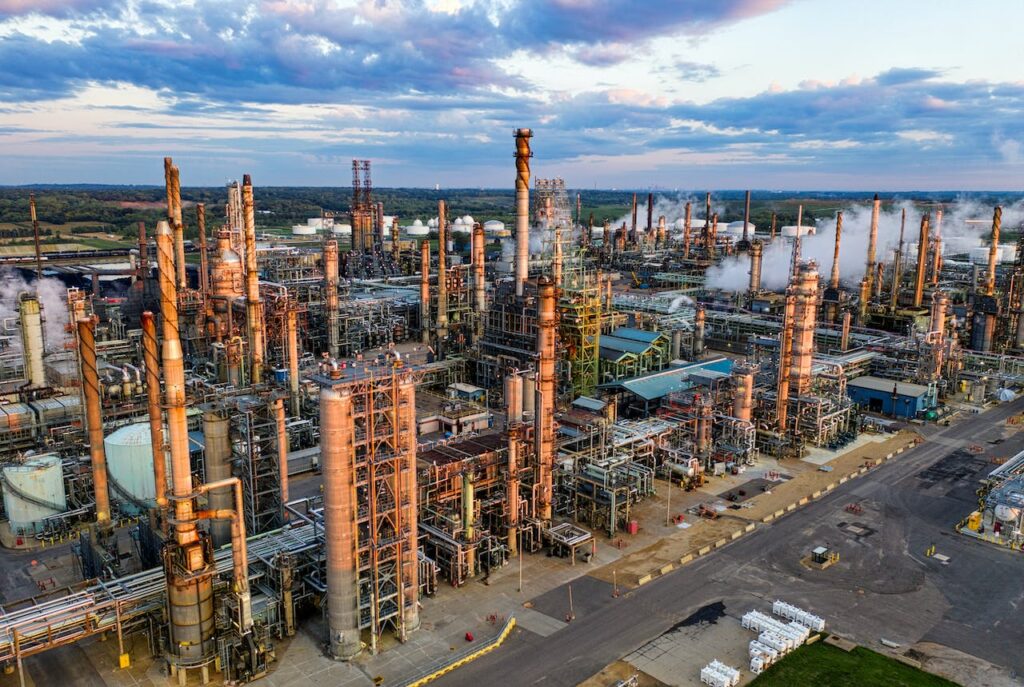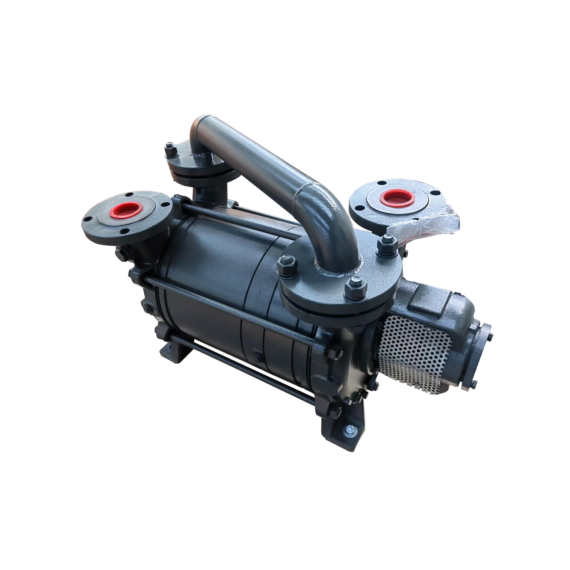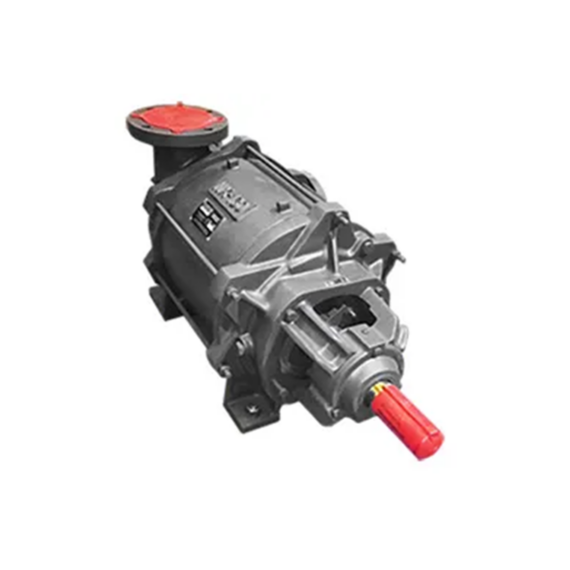
Liquid Ring Vacuum Pumps in Petrochemical Processes
Petrochemicals, derived from the hydrocarbons of crude oil distillation, encompass a wide range of products, including plastics, rubber, adhesives, and natural gas. The efficiency of various petrochemical processes is significantly enhanced through the strategic use of liquid ring vacuum pumps.
Material Storage and Filtering: For prolonged storage of crude oil components, air ingress over time can lead to oxidation and particulate formation. Liquid ring vacuum pumps play a crucial role in the preparation of stored materials for use or further refining. Filter-testing involves pressurized heating of the material and suction through microscopic pores, ensuring optimal quality.
Chlorine Analysis and Treatment: Crude oil may contain traces of chlorine, either inorganic salts or organically bonded. Analyzing chlorine levels is vital, as excessive chlorine can lead to the production of corrosive hydrochloric acid during processing. Liquid ring vacuum pumps contribute to the removal of chlorine gas when required, safeguarding the integrity of metal processing equipment.
Hydrogen Gas Separation: Hydrogen gas, a byproduct of crude oil refining, poses corrosion risks to metal piping and containers. Liquid ring vacuum pumps are employed to efficiently separate and remove hydrogen gas, maintaining the integrity of metal infrastructure.
Vinyl Chloride Handling: The production of vinyl chloride, a key component for polyvinyl chloride (PVC), requires careful handling due to its carcinogenic and flammable nature. Liquid ring vacuum pumps ensure the safe transportation of vinyl chloride gas under sub-atmospheric conditions for further processing, used in the production of various construction materials.
Desulfurization in Fossil Fuel Processing: Fossil fuel processing, especially crude oil refining, generates sulfur dioxide, a hazardous gas. Liquid ring vacuum pumps contribute to the desulfurization process, particularly in wet flue gas desulfurization. This method involves reacting lime slurry with sulfur, precipitating calcium sulfate, and effectively removing sulfur dioxide from the flue gas.
In the intricate processes of the petrochemical industry, the utilization of liquid ring vacuum pumps proves indispensable, optimizing efficiency and ensuring the integrity of various materials.

Transformer oil, or insulating oil, insulates high-voltage electrical components like transformers, switches, and circuit breakers. The oil is tested every 5 years; if nothing is wrong, the oil is changed every 20 years. This oil can be recycled and reused, but it needs to be purified, as it has been potentially exposed to oxidation, biosolid waste, and extreme humidity. In the purification process, the oil is degassed and distilled. The oil is put under subatmospheric conditions, disturbs the dissolved gasses within the oil, causing bubbles to rise and separate from the oil. Then, the oil is heated. The water in the oil vaporizes and is suctioned out, leaving just oil. This oil has retained its dielectric properties and is again ready for use.
Applications of Liquid Ring Vacuum Pumps
Liquid ring vacuum pumps play a pivotal role in optimizing various processes within the petrochemical industry, offering efficient solutions to challenges encountered in storage, filtration, and treatment of crude oil distillates.
Efficient Vacuum Filtration: In the storage of crude oil distillates, the ingress of air and humidity poses challenges. Liquid ring vacuum pumps are indispensable for efficient vacuum filtration, allowing liquid to pass through the filter while leaving precipitates behind. Their wet-running design with a liquid seal and minimal lubrication safeguards against humidity-related damage, ensuring a prolonged pump lifespan.
Safe Handling of Flammable Distillates: Engineered with isothermal pumping and inert liquid seals, liquid ring vacuum pumps ensure the secure handling of flammable distillates suspended in the air. Designed to meet explosion-proof standards, these pumps provide a safe environment, particularly in processes like the recovery of volatile substances such as vinyl chloride.
Corrosion-Resistant for Flue Gas Desulfurization: Moist sulfur dioxide in flue gas can lead to corrosive conditions. Liquid ring vacuum pumps, built with corrosion resistance, excel in scrubbing sulfur dioxide. Their constant vacuum capability supports various operations, including feeding flue gas into the scrubber, compressing lime slurry, suctioning clean oxygen gas, and pumping out calcium sulfate. The pump’s ability to handle sludge and slurry aligns perfectly with waste treatment requirements.
Robust Performance in Hydrogen and Chlorine Gas Handling: Liquid ring vacuum pumps exhibit corrosion resistance in the removal and compression of hydrogen and chlorine gases, common byproducts in distillation and refining. Their isothermal compression capabilities make them well-suited for efficiently and safely pumping large quantities of hydrogen gas, known for its flammable nature.
In the intricate processes of the petrochemical industry, where challenges range from flammable and corrosive substances to efficient filtration and safe handling of volatile gases, liquid ring vacuum pumps stand out as a reliable and versatile solution. Their robust design, corrosion resistance, and safety features make them essential for a wide array of applications.


